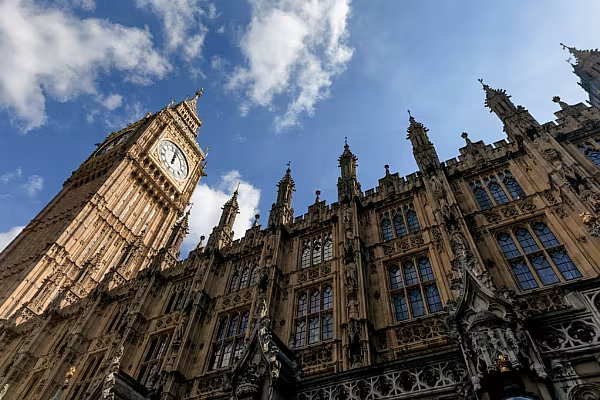Britain insisted on Sunday that the European Union should shift position to open the way to a post-Brexit trade pact, drawing a swift response from the bloc's negotiator defending the union's right to protect its interests.
Negotiations are expected to continue on Monday, beyond a Sunday deadline set by the European Parliament, and a senior British government source described them as "difficult" because of the "significant differences" in position.
With less than two weeks before Britain leaves the EU's orbit, both sides are calling on the other to move to secure a deal and safeguard annual trade in goods from tariffs and quotas. But so far, neither has budged far enough for a breakthrough.
Fair Competition Rules
Talks to reach a deal have been largely hamstrung over two issues - the bloc's fishing rights in British waters and creating a so-called level playing field providing fair competition rules for both sides.
British health minister Matt Hancock said on Sunday morning the bloc should drop its "unreasonable demands".
"We want these talks to reach a positive conclusion, of course I want a deal, I think everybody wants a deal," Hancock told Sky News. "Unfortunately, the EU have put in some unreasonable demands. ... I am sure a deal can be done but obviously it needs movement on the EU side."
Britain left the EU on 31 January and has been in a status-quo transition period since then. That expires at the end of the year when Britain will leave the bloc's customs union and single market.
EU negotiator Michel Barnier said talks with UK counterpart David Frost were at a 'crucial' point on Sunday.
"The EU remains committed to a fair, reciprocal and balanced agreement. We respect the sovereignty of the UK. And we expect the same," he said.
"Both the EU and the UK must have the right to set their own laws and control their own waters. And we should both be able to act when our interests are at stake."
Trade Barriers
The EU wants to be able to impose trade barriers in the event that Britain changes its regulations in the future and undercuts the bloc's market of 450 million consumers.
London wants to be able to set its own regulations and to have the right to respond if the other side changes its rules.
On fisheries, the bloc also wants the right to retaliate by curbing UK market access should Britain squeeze EU vessels out of its waters. London says it will become an independent coastal state from 2021 with full control of its waters but is open to discussions on a possible transition period for EU boats.
The British government source said the "talks remain difficult and significant differences remain. We continue to explore every route to a deal that is in line with the fundamental principles we brought into the negotiations".
Britain faces disruption at the beginning of the year, with or without a deal, but it is now set to be compounded by travel restrictions imposed by several European countries after the UK government identified a fast-spreading new coronavirus strain.
'Profoundly Serious Situation'
Scottish First Minister Nicola Sturgeon called on British Prime Minister Boris Johnson to extend the transition period because the new COVID strain "means we face a profoundly serious situation, and it demands our 100% attention. It would be unconscionable to compound it with Brexit".
Johnson, the face of Britain's 2016 campaign to leave the EU, has long said he cannot accept any deal that does not respect the country's sovereignty, a goal that was at the heart of his election last year.
But the EU is equally determined to protect its lucrative single market and wants to prevent London securing what it considers to be the best of both worlds - preferential market access with the advantage of setting its own rules.
There is little time left. On Saturday, the European Parliament repeated its call for a deal to be reached no later than this weekend, to give it time to properly ratify the agreement.
The EU has long said it wants to safeguard the parliament's right to exercise democratic oversight, but if an agreement arrived later than this weekend, the bloc's 27 member states could still endorse it on their own.














